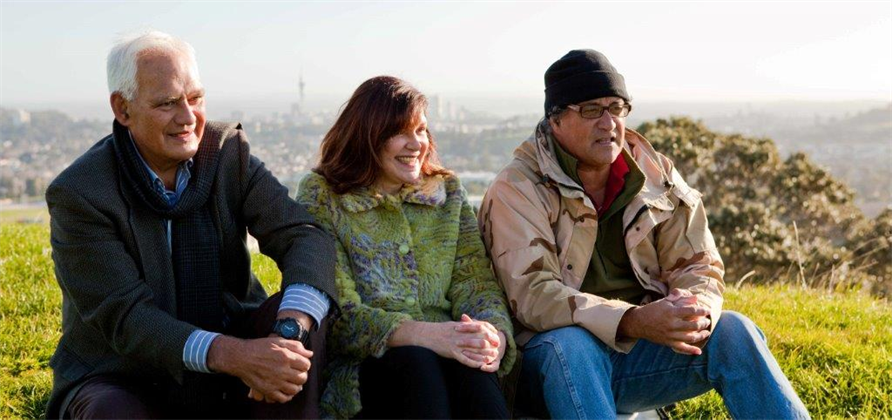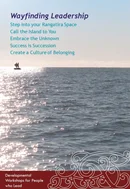About Us

Left: John Panoho. Over the past twenty-eight years John has worked steadily to turn the concept of cultural tourism into a business reality, dynamic and underpinned by authentic and sustainable experiences and engagement with Māori. Along the way he helped build and run successful travel, transport and in-bound tourism businesses and created, developed and operated unique cultural attractions.In recent years John has worked across the broad spectrum of the tourism industry, promoting Māori-values-based indigenous tourism experiences. From the mid-2000s, he introduced Māori cultural experiences to the luxury and super luxury markets, and has steadily built relationships with his offer of bespoke guiding services and exclusive networks of special people and places. The company has recently launched a unique canoe product (Waka Quest) in Auckland that promises to be the most authentic cultural experience in New Zealand. Over several years, John and his colleagues developed and delivered Māori-values-based leadership, team building and cultural competency programmes in New Zealand and internationally. Realising that marae (communal meeting grounds) and waka are pivotal to understanding and experiencing Māori culture, he has forged strong relationships with an urban/working marae community and the wider waka community. John's tribal affiliations are Parawhau, Te Uri Roroi, Ngāti Whātua, ko Ngāi Tawake ki te Moana, Te honihoni na Ngāpuhi Nui Tonu.
Middle: Chellie Spiller (Ngāti Kahungunu) is a professor at the University of Waikato Management School. She has over thirty years of corporate experience in tourism, finance and marketing, holding senior executive positions in New Zealand and abroad, and brings this experience to her academic work and leadership and management development programmes. Her research explores wayfinding, authentic leadership and how businesses can create sustainable wealth and wellbeing. Chellie was a Fulbright Senior Scholar at the Harvard Kennedy School and the University of Arizona. She is a recipient of a Research Excellence Award, Dame Mira Szászy Māori Alumni Award, National Māori Academic Excellence Award, and AuSM Best Lecturer Award. Chellie spent fifteen years in Sydney developing a career in tourism developing and leading tour programmes into countries as diverse as Bhutan, North Korea, Myanmar, Indonesia, Vietnam and India. On her return to Aotearoa in 1998, Chellie’s Māori grandmother Wikitoria Atkinson educated her over a number of years on Te Ao Māori. Other Māori elders, particularly Jane Marsden, Pereme Porter and Gray Theodore have mentored and guided Chellie, demonstrating humility, humanity, generosity, fierce grace, wisdom, deep faith and service in their leadership.
Right: Hoturoa Barclay-Kerr (Hotu) is the captain of the oceangoing waka Haunui. Hotu is from Tainui and is the son of Wharetoroa and Ngarungatapu Kerr. He is married to Kim and has five children: Namaka, Turanga, Rangiiria, Noenoe and Hinemanu. Hotu has been sailing around the Pacific for about thirty-five years. He paddles waka, sails waka, teaches waka. Hotu grew up with his numerous elders who nurtured and cared for him on the many marae of Waikato. He is a native Māori speaker and spent the first six years of his life with the Tuhoe people in Rūātoki, where his parents taught at the Ruatoki District High School. He was educated at Onehunga High School and went on to study for a BA at the University of Auckland, and a Masters at Waikato University. His Master’s thesis investigated how the waka is a symbol of mana in the twenty-first century. He was a lecturer at Waikato University for over nineteen years. More recently he has specialised in education and leadership programmes that use the waka as a platform for learning and development. Hotu is an orator on his marae at Kāwhia, the home of Haunui, and the ancient landing and settlement place of his ancestral waka, Tainui and his ancestor Hoturoa. He is a trustee on a number of trust boards and is currently the chairman of Taharoa C Incorporation, which administers and oversees the mining of iron sands on tribal lands.
Contact us via email chellie@xtra.co.nz
Buy the book online at Huia Publishers
Get the Kindle on Amazon
Connect with us on Facebook
Download the Wayfinding Leadership Workshop brochure
